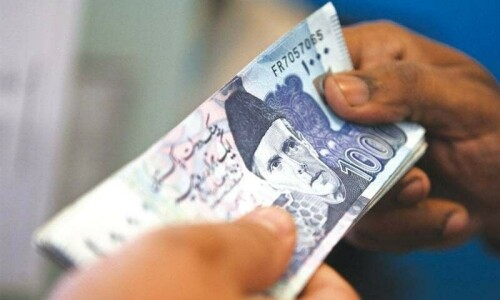THE terror attacks have added to the woes of the travel and hospitality industry in India. The raging recession in the developed world has already seen huge cancellations of air charters from Europe to places like Goa and Rajasthan and hotels in cities like Mumbai, Delhi and Bangalore have also been reporting significantly lower bookings during the current season.
Traditionally, the peak season for tourism in India is between November and February, when it is virtually impossible to get rooms in 5-star properties or even 3- and 4-star ones. Besides the metros, popular destinations like Kerala, Goa, Rajasthan and other beach and forest resorts around the country report nearly 100 per cent occupancies.
Hotels and resorts in glamorous tourist locations — including the three states — jack up their tariffs, virtually doubling it (as compared to the lean season). Tourists are at the mercy of these properties and have to shell out hefty premiums. Airlines too raise their fares, confident that most of their flights would be packed during the winter months.
But the current recession in the West has come as a shock to the industry. Many of the charter flights from Germany, France, the UK, Sweden and Norway to Goa and other popular destinations have been cancelled. Hotels have frozen their tariffs to last year’s peak levels, instead of increasing them by 25 to 30 per cent as they have been doing every year.
The terror attacks on Mumbai last week will have disastrous consequences, not just on the travel and hospitality industry in the city, but even in other parts of India. The steep fall in the value of the rupee against most other currencies should have seen a sharp increase in foreign visitors this year, but the recession and the terror attacks have brought gloom to the industry.
The domestic travel industry is also expecting a setback this year, as fears of a slowdown in the economy will prevent people from spending too much on holidays. The worst hit would be states like Goa, which are overly dependant on tourism. Most of the luxury properties in the sunny state are facing a crisis, as bookings have slid dramatically.
Some of them have had to cutback on their employees, sending them away on forced leave. Others have scaled down their ambitious expansion plans, worried that the recession could last for two to three years, impacting cash flows in the future as well.
Similarly, dozens of international hotel chains who are investing millions of dollars in building new properties in and around Delhi – to meet the expected rush of tourists in 2010, when the Indian capital will be hosting the Commonwealth Games – are wondering whether the investments will pay off in the long run.
* * * * *
SECURITY personnel at many 5-star hotels in India are often deployed more for ceremonial and cultural reasons than for hard-core security work. Many of the personnel are dressed elaborately in regional outfits, with daggers by their side. They are required to bow and salute guests, almost fawn on foreigners.
Most security tasks at 5-star properties revolve around welcoming guests, saluting senior executives, opening and shutting car doors and driving away ordinary mortals who dare to approach the property. In many 5-star hotels in Mumbai, Delhi and Bangalore, security personnel also ensure that guests who come in auto-rickshaws or motor-bikes are not allowed anywhere near the main entrance – they are supposed to either get off outside the property, or park in some distant corner.
Dressing up security-men in elaborate costumes and shooing away ‘unwanted’ guests may appear to be impressive, as such feudal acts are meant to be, but in the post 9/11 era, they are definitely foolhardy. Imagine a security man at the entrance to a 5-star hotel bowing and welcoming a ‘guest,’ – driven in a Mercedes – whose suitcase contains deadly explosives and grenades, and whose shoulder-bag includes AK-47 rifles. Minutes later, the ‘guest’ starts firing randomly, killing not just the security man, but scores of other guests and hotel staff.
Last week’s attack on the two 5-star hotels in Mumbai should indeed bring about a sea-change in the approach of the hospitality industry towards security issues. Most security concerns at hotels have focused on flippant matters, which do not address the basic issues.
There is indeed glaring lacuna in this respect at most hotels, unlike at airports where there is 100 per cent security check for all bags and belongings of travellers. The terrorist attacks in Mumbai last week would hopefully bring about dramatic changes in the security environment in the hospitality industry, which is growing at a rapid pace in India.
About five million foreign tourists and tens of millions of domestic tourists travel across the country every year. But it is only at airports that there is some kind of a check on the contents of their personal belongings and their baggage.
* * * * *
THE relative ease with which terrorists managed to enter two top hotels in Mumbai and the busiest railway station – the Victoria Terminus (VT) – armed with AK-47 rifles and with bags loaded with explosives and hand-grenades, indicates the shocking manner in which most organisations deal with security-related issues in India.
The two-day mayhem unleashed last week by terrorists in the city, killing nearly 150 persons and injuring over 350, reflects the glaring gap in security, exploited to the hilt by the militants. And considering that Mumbai has been a victim of half-a-dozen major terrorist attacks over the past 15 years, it is indeed surprising that most organisations still treat security with disdain.
The standard response to growing security needs in both the public and private sectors in India is to hire untrained personnel offered by numerous agencies, many of which are little more than hole-in-the-wall outfits. In most cases, there is no serious formulation of a security strategy. Security is looked upon as an unnecessary expenditure item and all efforts are focused on ensuring the lowest-cost solution.
The result: an agency that offers the maximum number of security-men for the least cost gets the contract. In government organisations like Indian Railways, for instance, it is the numbers that matter. So VT station, for instance, has an impressive number of security personnel – both men and women – hanging all over the historic terminus.
But most of them can be seen whiling away their time, staring at commuters, chewing on tobacco, gossiping and discussing the day’s news, or speaking all the time on their mobile phones. Dozens of security personnel have been posted at the entrance and exit points to the station, metal detectors have been installed and even closed-circuit television cameras have been placed prominently.
However, the security personnel ignore the metal detectors, even when it literally screams – indicating that someone is carrying a dangerous object. The only time that the personnel are on alert is about twice or thrice a day when their seniors do a quick round of the station.
A few unscrupulous security personnel are also busy in rent-taking activities, harassing petty hawkers and beggars, and extorting money from them. And the personnel who are supposed to monitor the cameras complain of boredom and hours of visuals go unseen at the control rooms.
Not surprising then that the terrorists casually strolled into VT station (which has been renamed as the CST station), armed with their deadly AK-47s and carrying hand-grenades and opened indiscriminate fire last Wednesday night, killing at least a score of commuters.
Fortunately, the event unfolded after 10 pm, when there’s a significant fall in commuter traffic. Had it happened during the morning or evening peak hours, hundreds would have been killed in the terrorist attack.















































Dear visitor, the comments section is undergoing an overhaul and will return soon.